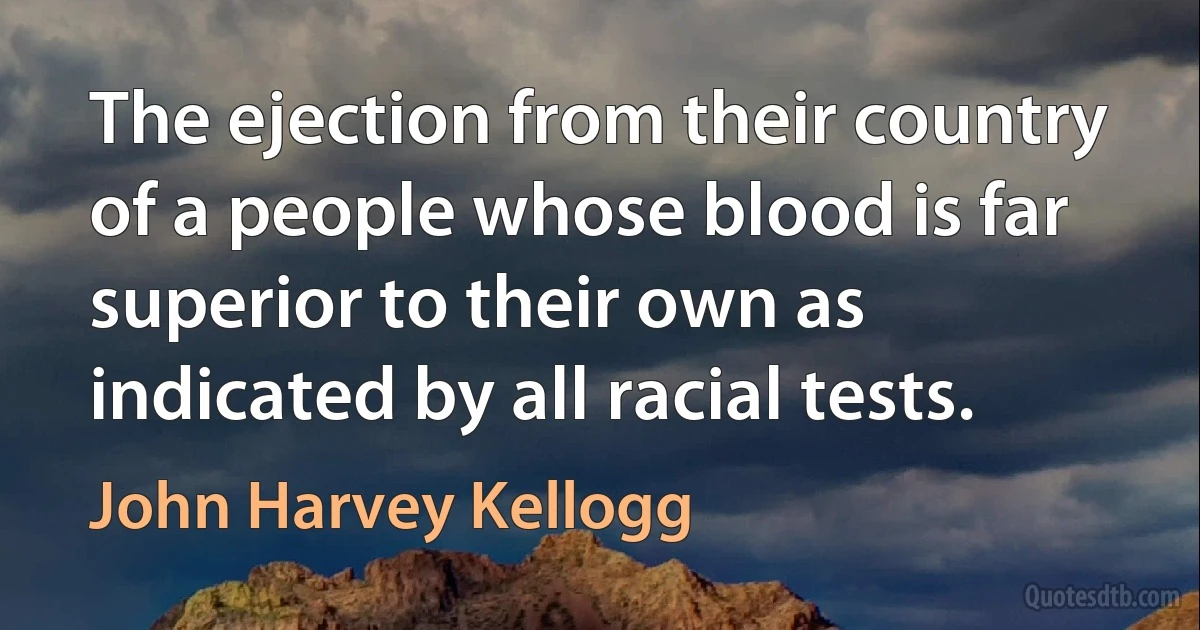Superior Quotes - page 23
Protocols:
Number 1, paras. 9,10
If every State has two foes, and if in regard to the external foe it is allowed and not considered immoral to use every manner and art of conflict, as for example to keep the enemy in ignorance of plans of attack and defense, to attack him by night or in superior numbers, then in what way can the same means in regard to a worse foe, the destroyer of the structure of society and the commonweal, be called immoral and not permissible?
Is it possible for any sound logical mind to hope with any success to guide crowds by the aid of reasonable counsels and arguments,, when any objection or contradiction, senseless though it may be, can be made and when such objection may find more favor with the people, whose powers of reasoning are superficial?
Graves: The basic ideas are the same despite word changes like... "two kinds of enemies” versus, "two foes.”.

Will Eisner
There always was and there always will be conflict between Good and Good Enough, and in opening up a new business or a new department one can count upon meeting resistance to a high standard of workmanship. It is easy to get cooperation for mediocre work, but one must sweat blood for a chance to produce a superior product.

Henry M. Leland
Vegetarians and vegans are not morally superior to everyone else. We're simply healthier, and a hell of a lot better for the environment around us. Of course, just because we're not morally superior doesn't mean we're not on the side of the angels. I believe we are. After all, we're practitioners of a diet that's better for people, better for animals, and better for the environment.

Howard F. Lyman
The structures of society and culture are fighting turned to stone; they are what comes into existence so long and insofar as we interrupt our practical and ideological struggles over the organization of life in society. When the fighting escalates again, the structures dissolve into the collective action and imagination from which they arose. When we fashion structures design to invite their own reconstruction, we make them into both superior instruments of our power and more faithful reflections of our humanity.

Roberto Mangabeira Unger
A novel is a marketable commodity, of the class collectively termed "luxuries,” as not contributing directly to the support of life or the maintenance of health. It is of the class "artistic luxuries" because it does not appeal to any of the three material senses - touch, taste, smell; and it is of the class "intellectual artistic luxuries,” because it is not judged by the superior senses - sight and hearing.

Francis Marion Crawford
The slave-owner is at times visited with a nightmare. He finds that his free will, in spite of its freedom, is thwarted, not by a superior will but by things-in-themselves – by inferior wills, accidents, mistakes, and his own ignorance. Yet he is still unable to conceive his will except as being thwarted like that of his slave's by another will, and since he the master is so thwarted, might not even the world's master and his – God Himself – be thwarted in his volition by some grand over-riding will, by Will-in-Itself? This is the slaveowning conception of Moira, or Fate, a comparatively late development reaching its noblest expression in Greek tragedy. This Fate, in spite of its closeness to bourgeois determinism, betrays its slave-owning parentage by the fact that it is always visualised as a consciously forseeing Will, and always as thwarting, not determining human wills as well as events, but interfering with human wills by means of events.

Christopher Caudwell
O slayer of foes, I have no complaint even if thou beest unpropitious to me. I have, O sinless one, also no complaint that though by birth I am superior to Kunti yet I am inferior to her in station. I do not grieve, O thou of Kuru's race, that Gandhari hath obtained a hundred sons. This, however, is my great grief that while Kunti and I are equal, I should be childless, while it should so chance that thou shouldst have offspring by Kunti alone. If the daughter of Kuntibhoja should so provide that I should have offspring, she would then be really doing me a great favour and benefiting thee likewise. She being my rival, I feel a delicacy in soliciting any favour of her. If thou beest, O king, propitiously disposed to me, then ask her to grant my desire.

Kunti
Wars always were contests of similar competing powers, and the deepest structure of society remained the same, whether one won or the other. Contests of classes are fights for new principles, and the victory of the rising class transfers the society to a higher stage of development. Hence, compared with real war, the moral forces are of a superior kind: voluntary devoted collaboration instead of blind obedience, faith to ideals instead of fidelity to commanders, love for the class companions, for humanity, instead of patriotism. Their essential practice is not armed violence, not killing, but standing steadfast, enduring, persevering, persuading, organizing; their aim is not to smash the skulls but to open the brains. Sure, armed action will also play a role in the fight of the classes; the armed violence of the masters cannot be overcome in Tolstoian fashion like by patient suffering. It must be beaten down by force; but, by force animated by deep moral conviction.

Antonie Pannekoek
I do not wish to be a king; I am not anxious to be rich; I decline military command; I detest fornication; I am not impelled by an insatiable love of gain to go to sea; I do not contend for chaplets; I am free from a mad thirst for fame; I despise death; I am superior to every kind of disease; grief does not consume my soul.

Tatian
The child who has been taught to realise the claims that God's lower creatures have upon him, whose heart has been touched by lessons of kindness and mercy, under their sweet influence will grow to be a large-hearted, tender-hearted, manly man. Then let the children be trained, their hands, their intellects, and above all their hearts. Let them be taught to have pity for the animals that are at our mercy, that cannot protect themselves, that cannot explain their weakness, their pain, or their suffering, and soon this will bring to their recognition that higher law, the moral obligation of man as a superior being to protect and care for the weak and defenceless. Nor will it stop here, for this in turn will lead them to that highest law-man's duty to man.

Ralph Waldo Trine
Pandit Jawaharlal Nehru has compelled me to study, among other things, the implications of a Constituent Assembly. When he first introduced it in the Congress resolutions, I reconciled myself to it because of my belief in his superior knowledge of the technicalities of democracy. But I was not free from skepticism. Hard facts have, however, made me a convert and, for that reason perhaps, more enthusiastic than Jawaharlal himself.

Shankar Dayal Sharma



